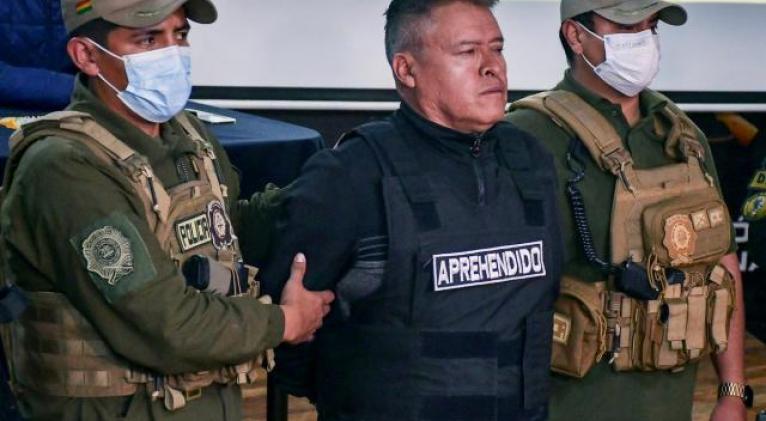Bolivian Coup Leader Argues Drug Dependency as Defense
especiales

The former head of the Bolivian Army and ringleader of the failed coup on June 26, Juan José Zúñiga, seeks to hide his guilt by claiming he was “high” at the time of as events unfolded.
The allegation came from an interview granted to the Detrás de la Verdad (DTV) channel by Ricardo Rodríguez, lawyer of Luis Fernando Hamdan, also implicated in the military coup, who has been denounced as one of the masterminds behind the failed attempt.
“It is with great sorrow that we have learned of (former) General Zúñiga’s sad defense in this case. The Public Prosecutor’s Office has requested that the IDIF (Institute of Forensic Investigations) performs a toxicological test on him (…)”, the lawyer said.
Rodríguez told DTV that Zúñiga’s attempts to prove that on the afternoon of June 26 he had acted under the influence of a controlled substance that led him into such behavior.
The legal practitioner countered the statements by the former officer, who led the June 26 uprising, when he occupied Plaza Murillo, the political epicenter of the country, leading a detachment of heavily-armed troopers and tanks.
One of those armored vehicles forced open the door of the Government Palace, clearing the path for Zúñiga to take control of the Casa Grande del Pueblo (presidential headquarters).
According to Rodríguez, Zúñiga insisted on his request, even after the IDIF informed that blood or urine tests could no longer be done, as their period of validity, of 24 and 72 hours, respectively, had expired.
“Trying to seek semi-imputability through a toxicological test and trying to mitigate such an act is really not appropriate. There are other types of arguments for the defense, but you cannot defend the indefensible,” Rodríguez lamented.
The failed coup attempt remains in the investigative phase, as part of an inquiry involving more than 100 people, 26 of whom remain in precautionary imprisonment, according to the Ministry of the Interior.














Add new comment